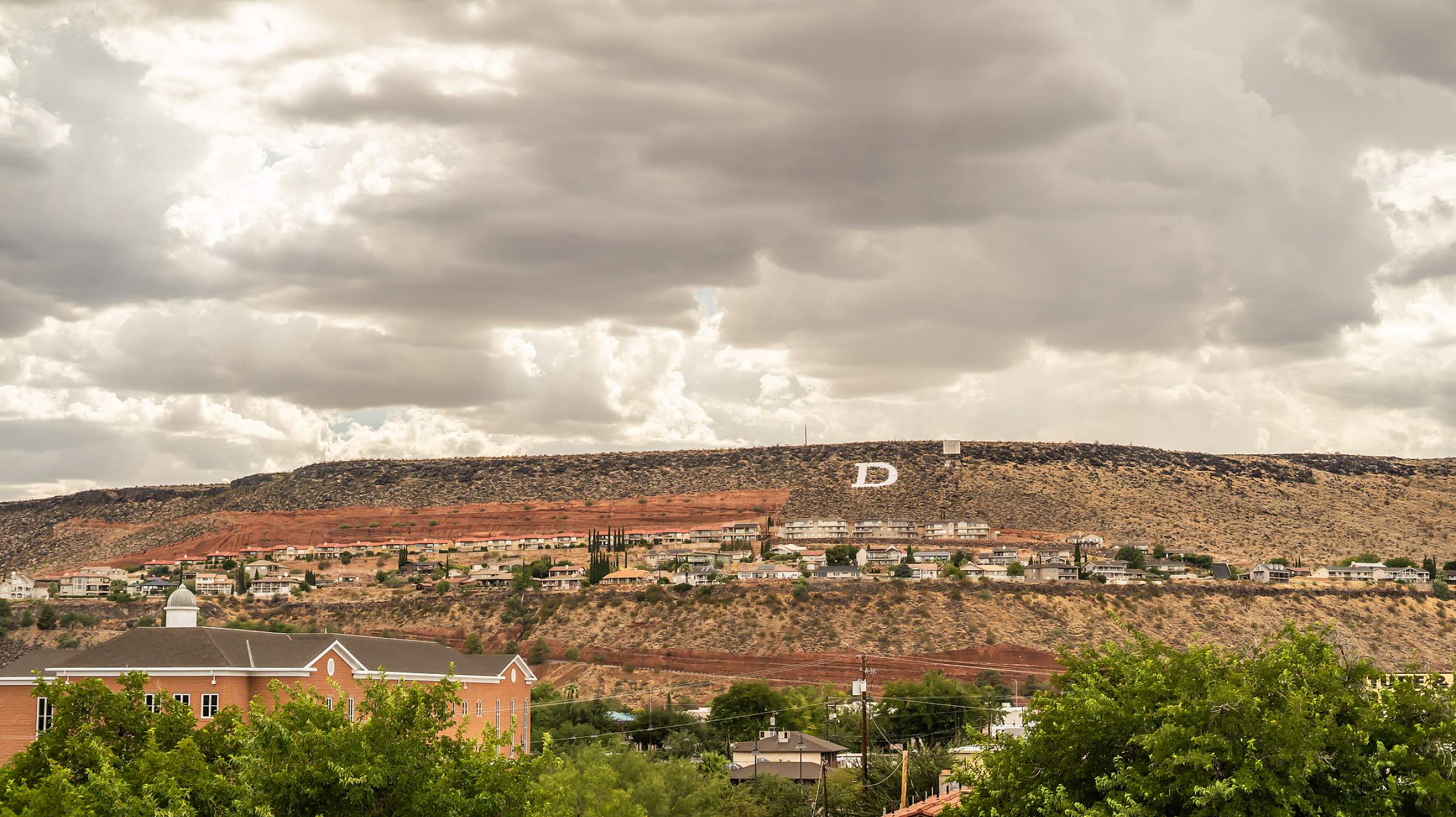Southern Utah Regional Medical Campus
Southern Utah Regional Medical Campus
Mission
The Southern Utah Regional Medical Campus in St George, Utah, trains future physicians dedicated to advancing healthcare in rural Utah. Through a community-centered curriculum and hands-on experiences across the region, students gain the skills, knowledge, and compassion to become leaders in primary care.

Applications for the Southern Utah Regional Medical Campus open 05/01/2025.
Read the full page for more information and frequently asked questions. Email SURMC@hsc.utah.edu if you have additional questions.
General Info
Interested in becoming a rural doctor? The Southern Utah Regional Medical Campus emphasizes rural primary care and population health. Both campuses share a core curriculum, and both offer rural and population health tracks. But SURMC students will be uniquely positioned in the community, and have opportunities to work with rural health care providers around St George.
An MD cohort of 10 will be accepted, focusing on rural primary care and population health.
Students accepted into the regional campus will spend their first year in Salt Lake City, then transfer to St George in their second year.
Admissions
Frequently Asked Questions
-
Admission requirements are the same as the Salt Lake City campus. Applications are reviewed holistically, meaning all of an applicant’s activities are considered as part of their application, in addition to their grades and test scores.
View full list of requirements and activities here.
-
Students deeply committed to rural health care. Students will be equipped with the skills, knowledge, and experiences necessary to thrive in rural primary care practice in Utah. Students not interested in pursuing a practice in rural primary care should apply to the Salt Lake City campus.
SURMC students will be enrolled in of two graduate certificates: Tribal, Rural and Underserved Medical Education (TRUE) or Population Health Sciences.
-
All applications must be submitted through American Medical College Application Services (AMCAS). Students invited to complete a secondary application will be required to choose either the SURMC or the Salt Lake City campus. By choosing the SURMC, you will be asked to complete secondary essay questions that evaluate your experience and motivation to pursue a career in rural primary care in Utah.
-
No. A rural background is not required to apply. However, an applicant's background and experience are considered as part of the holistic review process to determine an applicant’s commitment to serving rural communities in Utah.
-
No. However, residency status is considered in the allocation of seats. As a program intended to increase the number of rural primary care physicians in Utah, Utah residents are prioritized for admission above out-of-state applicants.
**Out-of-state applicants with a payback requirement, including Idaho, Wyoming, and Montana residents (due to seat allocation constraints and WICHE funding agreements) are not eligible to apply to SURMC.
-
The regional campus generally follows the same admissions timeline as the Salt Lake City campus. Interview invitations for the campus will begin in August, with interviews occurring in November. Due to our rolling admissions process, applicants are encouraged to submit their applications as early as they are able. There is a priority submission deadline of August 1, with the ability to submit applications through October 1.
-
No. Applicants must choose one campus to apply to.
After applying through AMCAS, students will be invited to complete a secondary application and will then choose which campus to apply to.
-
Yes. If you are not selected for a regional campus interview, you will be notified and asked if you would like your application to be considered by the main campus. Your application will only be considered by the Salt Lake City campus if you are not selected to interview for the SURMC. If you were selected to interview for the regional campus and are either accepted, waitlisted, or not accepted, you will not be considered for admission to the Salt Lake campus.
-
We understand that specialty preferences may evolve over the course of medical school. For students who decide not to continue the unique program focus on rural primary care at the SURMC, each case will be reviewed individually. All students enrolled in the SURMC are expected to complete the requirements of their chosen graduate certificate program by the end of year three of the MD program. At the conclusion of year three, SURMC students choosing a residency in a non-primary care specialty may request to relocate to the Salt Lake City campus to complete year four. A personalized plan to facilitate a smooth transition back to the Salt Lake City campus will be created for approved relocation requests.
Miscellaneous
Frequently Asked Questions
-
All students at the SFESOM are eligible to apply to a variety of financial aid options, including scholarships, grants, and loan forgiveness programs for students committed to working in primary care and in rural and medically underserved areas.
-
No, not currently. However, the SFESOM has two financial aid options that align particularly well with the requirement for SURMC students to complete a 15-credit graduate certificate in either the TRUE Program or Population Health Sciences. Completion of the TRUE Program is a core requirement for students accepted into the Rural Primary Care Track. Completion of the graduate certificate in population health sciences is a core requirement for students accepted into the Intermountain Health Population Health Scholars Program. Students applying to the SURMC will be required to apply to each of these programs during the secondary application process. If students choose to accept either of these financial aid options, they will be bound by the requirements of the respective program.
-
The SURMC collaborates with local healthcare providers, community organizations, and public health agencies to address healthcare needs and improve access to services in rural areas. Interprofessional education in the region plays a vital role in community engagement by and will equip students with the knowledge, skills, and values necessary for teamwork and interdisciplinary collaboration, enabling them to become leaders in Utah’s rural communities.
-
Yes, students will be required to complete a community engagement experience during phase two and capstone project in either TRUE or population health sciences in phase three. Additional experiences are encouraged to engage in community service projects and outreach programs that benefit rural populations.
-
Students admitted to the SURMC will complete phase one of the MD program in Salt Lake City, engaging in the care of patients in a student-led clinic network that connects students with medically underserved communities. During phase two, students will complete LICs in clinics and community health centers in St. George and surrounding areas, with immersive inpatient experiences at affiliated hospitals in the region. During phase three, students will complete required clinical rotations at affiliated hospitals in the region, and have an opportunity to travel further afield to rural and critical access hospitals throughout southern Utah. To ensure a high quality educational experience for all students, some inpatient experiences may need to be at the Salt Lake City campus.
-
Utah’s most rural and frontier communities rely heavily on “full spectrum” family medicine physicians prepared to meet a majority of the healthcare needs in their communities. Full-spectrum family medicine includes:
outpatient primary care- inpatient medicine
- urgent and emergency care
- maternity care
- sports medicine
- mental health care
- public health
- international medicine
- wilderness medicine
- procedures, education, and research
A focus on full spectrum family medicine prepares students to enter primary care fields, such as family medicine, pediatrics, internal medicine, and obstetrics and gynecology. Together with meeting the core curriculum requirements, students who attend the SURMC will also be prepared to enter other high need generalist fields in rural communities, such as psychiatry and general surgery.




